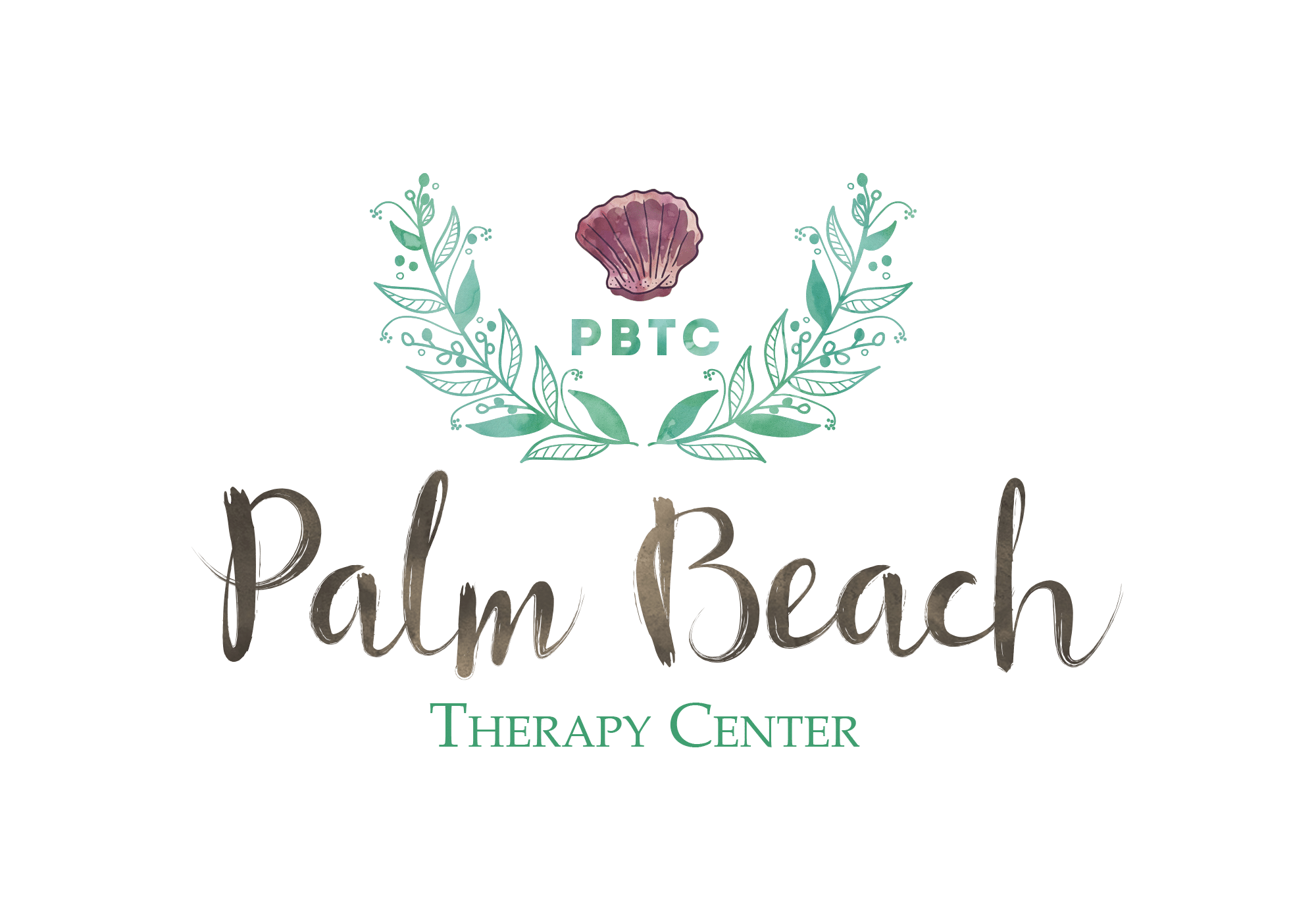Palm Beach Therapy Center - Boca Raton, FL Love is a labyrinth of emotions, desires, and complexities. At the heart of it all lies our attachment ...
Trauma Therapy in Boca Raton, FL | Online PTSD Therapy

You are more than what happened to you.
Trauma is more common than you might think, with 70% of Americans experiencing at least one traumatic event in their lifetimes. If you’ve experienced trauma, it can feel like it’ll always stay with you.
But you are so much more than what happened to you. There are ways to heal from your past and enjoy life again. Trauma therapy at our mental health clinic in Boca Raton can help.
What is trauma and PTSD?
Trauma refers to an emotional or psychological response to a distressing or disturbing event or series of events.
While many individuals may experience distress following a traumatic event, not everyone develops Post-Traumatic Stress Disorder (PTSD).
PTSD is a mental health condition that can develop after exposure to trauma, characterized by symptoms such as:
- Intrusive memories: Persistent and distressing memories of the traumatic event, often in the form of flashbacks or nightmares.
- Avoidance behaviors: Avoidance of reminders of the trauma, including places, people, or activities that may trigger distressing memories.
- Negative changes in mood and cognition: Persistent negative beliefs about oneself or the world, feelings of detachment or estrangement from others, and difficulty experiencing positive emotions.
- Hyperarousal: Heightened arousal and reactivity, including hypervigilance, exaggerated startle response, and difficulty concentrating or sleeping.
Whether or not you develop PTSD symptoms has to do with many different factors including previous traumatic events you may have gone through. Developing PTSD is not your fault, and it is not a sign of a weak mind. Anyone can develop PTSD after experiencing a trauma.
The impact of trauma on mental health
Experiencing trauma can have a profound impact on mental health and well-being. Individuals who have experienced trauma may be at increased risk for developing mental health conditions such as Post-Traumatic Stress Disorder (PTSD), depression, anxiety disorders, substance abuse, and other related issues.
Therapy for trauma and PTSD can help
Therapy can provide hope and healing for anyone struggling with trauma and PTSD. Therapy empowers you to process traumatic experiences, reduce and manage symptoms, welcome healing, and reclaim your life.
Through a collaborative and trauma-informed approach, therapy at our clinic provides a safe and supportive space for you to embark on a journey of recovery and resilience.
There are many effective treatments available for trauma and PTSD. Here are the ones we offer.
- Our therapists utilize Eye Movement Desensitization and Reprocessing (EMDR) to address trauma and PTSD symptoms. EMDR is a specialized and effective form of therapy that incorporates bilateral stimulation to help you process traumatic memories and reduce distress. By guiding you through sets of eye movements, taps, or sounds, EMDR aims to facilitate adaptive processing of traumatic experiences and alleviate PTSD symptoms. EMDR is very effective, and is considered a top evidence-based treatment for PTSD.
- Cognitive-Behavioral Therapy (CBT) can help you identify and challenge negative thought patterns and beliefs associated with the traumatic event. Through cognitive restructuring and exposure therapy, you can learn to how reframe your perceptions of the trauma and stop avoiding triggers.
- Solution-Focused Brief Therapy (SFBT) focuses on identifying and amplifying your already existing strengths and resources to create solutions to your current challenges. We will work collaboratively with you to set achievable goals and develop strategies for overcoming obstacles.
- Mindfulness techniques, such as meditation, body awareness, and breathing exercises, can help you cultivate present-moment awareness and better regulate your emotions. These practices promote relaxation, reduce anxiety, and increase self-awareness. They can tether you to the here and now when PTSD symptoms try to bring you back into the past.
Signs of Trauma
When left unaddressed, trauma can dig in deeper. Here’s how trauma can affect you emotionally and mentally.
Distressing thoughts & reliving the event
Memories & Flashbacks
Avoiding people, places, or reminders
Avoidance Behaviors
Feeling hopeless, or guilty
Negative Emotions & Thoughts
Difficulty concentrating or relaxing
Feeling On Edge & Jittery
Feeling disconnected from others
Relationship Challenges
Trying to shut down feelings
Emotional Numbness

Types of traumatic events
Traumatic events can vary widely in nature and severity, and what may be traumatic for one person may not be traumatic for another. Some common types of traumatic events include:
Physical or sexual abuse: Experiencing physical or sexual abuse, whether in childhood or adulthood, can have profound and lasting effects on your mental and emotional health.
Accidents or natural disasters: Being involved in a serious accident or experiencing a natural disaster such as a hurricane can be traumatic and lead to feelings of fear, helplessness, and vulnerability.
Combat exposure: Military personnel and veterans may experience trauma as a result of combat exposure, including witnessing or participating in violent or life-threatening situations.
Witnessing violence: Witnessing violence, whether in the home, community, or through media exposure, can be traumatic and leave emotional scars.
Medical trauma: Medical trauma can result from experiences such as serious illness, injury, surgery, or medical procedures, particularly if they are life-threatening or invasive.
Loss of a loved one: Grief and loss, particularly the sudden or violent death of a loved one, can be deeply traumatic and lead to feelings of intense sadness, anger, and despair.
Childhood trauma: Adverse childhood experiences (ACEs) such as neglect, parental substance abuse, emotional abuse, or growing up in a dysfunctional or chaotic environment can have long-lasting effects on your mental and emotional health.
Community violence: Exposure to community violence, such as shootings, gang activity, or riots, can be traumatic and create a sense of insecurity and fear.
FAQs about trauma therapy
Does trauma ever go away?
Trauma does go away in the sense that, with treatment, it will no longer affect you the way it does today. Life may not be exactly the same as it was before, but a meaningful and happy life is possible.
What happens if PTSD is left untreated?
PTSD does not tend to get better without treatment. Images and memories can continue to haunt you, and you may continue to live with the painful (and inaccurate) thoughts about yourself that the trauma has caused. But with treatment, people who have gone through trauma can feel happy and safe again.
What is the most effective PTSD treatment?
One of the most effective treatments for PTSD is EMDR, which we offer at our clinic. EMDR is so effective because it can reach the effects of trauma that you may not be able to describe in words.
Get PTSD therapy in Boca Raton, FL
It can be difficult to see, but there is hope for a meaningful and fulfilling life after trauma. This event will not define you forever, but when left untreated, trauma can become like a painful splinter – it digs deeper and deeper into your psyche. With the support of therapy, you can reclaim the story of what happened and start to heal from its effects.
Reclaim your life from trauma. Start the therapy process by giving us a call at (561) 485-4633. Our office is located in Boca Raton, and our clinical team is ready to support and listen.
How It Works

Contact Our Office
Contact our office via phone or e-mail to schedule your initial session. We are here to make this process as easy and comfortable as we can for you.
Complete Paperwork
Complete the paperwork provided to you online within 24 hours of scheduling and mark the date on your calendar, we are looking forward to working with you!
Go To Therapy
Attend your initial session and discuss treatment planning with your therapist. Treatment plans may look different for each case. It is typically suggested that sessions take place weekly or biweekly.
Top Articles
Read Better, Live Better
Recognizing the Signs: When You Know You Need Couple’s Therapy
Relationships are complex, dynamic, and ever-evolving journeys shared between two individuals. While they often bring joy, love, and companionship, they can also encounter challenges, conflicts, and roadblocks along the way. Recognizing when your relationship could benefit from couple’s therapy is an important step towards fostering growth, healing, and deeper connection. In this blog, we’ll explore common signs indicating that couple’s therapy may be beneficial, dispel misconceptions surrounding therapy, and highlight the transformative power of seeking professional support.
Parenting: Healing Our Inner Children
Palm Beach Therapy Center - Boca Raton, FL Raising children is a profound journey that not only involves nurturing and guiding the next generation but also ...
Modern Therapy For Your Lifestyle.
At Palm Beach Therapy Center, we recognize that the decision to seek therapy can be a challenging one. It takes courage to confront difficult emotions and work towards personal growth. That's why we are committed to providing a supportive and comfortable environment that makes the process as seamless as possible.
Boca Raton Location
By Appointment Only






